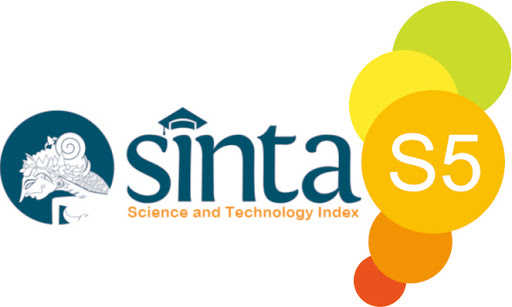GAYA BELAJAR SISWA SMP DITINJAU DARI LOCUS OF CONTROL
Kata Kunci:
Gaya Belajar, Locus Of Control, Siswa SMPAbstrak
Tujuan dari penelitian ini untuk mengetahui apakah gaya belajar visual, auditory serta kinesthetic pada siswaberbeda antara siswa yang memiliki locus of control internal dan locus of control eksternal. Metode yang digunakan dalam penelitian ini yaitu kuantitatif. Partisipasi dalam penelitian ini adalah siswa/siswi kelas II SMP berjumlah 42 partisipasi. Instrumen pengumpulan data menggunakan VAK dan skala Locus of control. Hasil analisis menggunakan crosstabulationdibantu dengan program SPSS seri 20 versi IBM for Windows, menunjukkan distribusi jumlah subyek berdasarkan LoC dan gaya belajarnya, menghasilkan Chi Square 1,795 dengan df = 2 pada p = 0,408 (p>0,05) yang berarti tidak ada perbedaan yang signifikan antara gaya belajar visual, auditori dan kinestetik siswa SMP ditinjau dari locus ofcontrolinternal dan eksternalnya. Artinya seorang siswa dalam belajar tidak seharusnyadipengaruhi oleh locus of controleksternal atau internal untuk mengontrolnya, mungkin juga dipengaruhi oleh gaya imajinatif, antusias, belajar logis atau praktis. Dapat disimpulkan bahwa hipotesis yang diajukan dalam penelitian ini ditolak.
The aim of this research is to find out whether the visual, auditory and kinesthetic learning styles of students are different between students who have an internal locus of control and an external locus of control. The method used in this research is quantitative. Participants in this research were 42 class II junior high school students. Data collection instruments used VAK and the Locus of control scale. The results of the analysis using crosstabulation assisted by the SPSS series 20 program, IBM version for Windows, show the distribution of the number of subjects based on LoC and learning style, producing a Chi Square of 1.795 with df = 2 at p = 0.408 (p> 0.05) which means there is no significant difference. significant between the visual, auditory and kinesthetic learning styles of junior high school students in terms of their internal and external locus of control. This means that a student in learning should not be influenced by an external or internal locus of control to control it, it may also be influenced by an imaginative, enthusiastic, logical or practical learning style. It can be concluded that the hypothesis proposed in this research is rejected.





